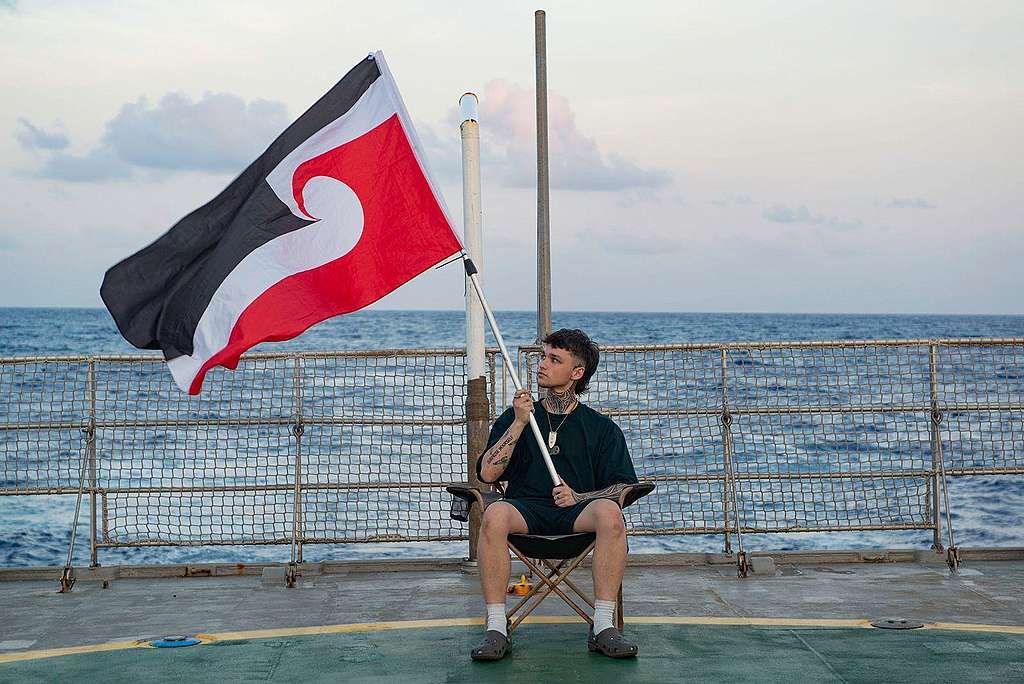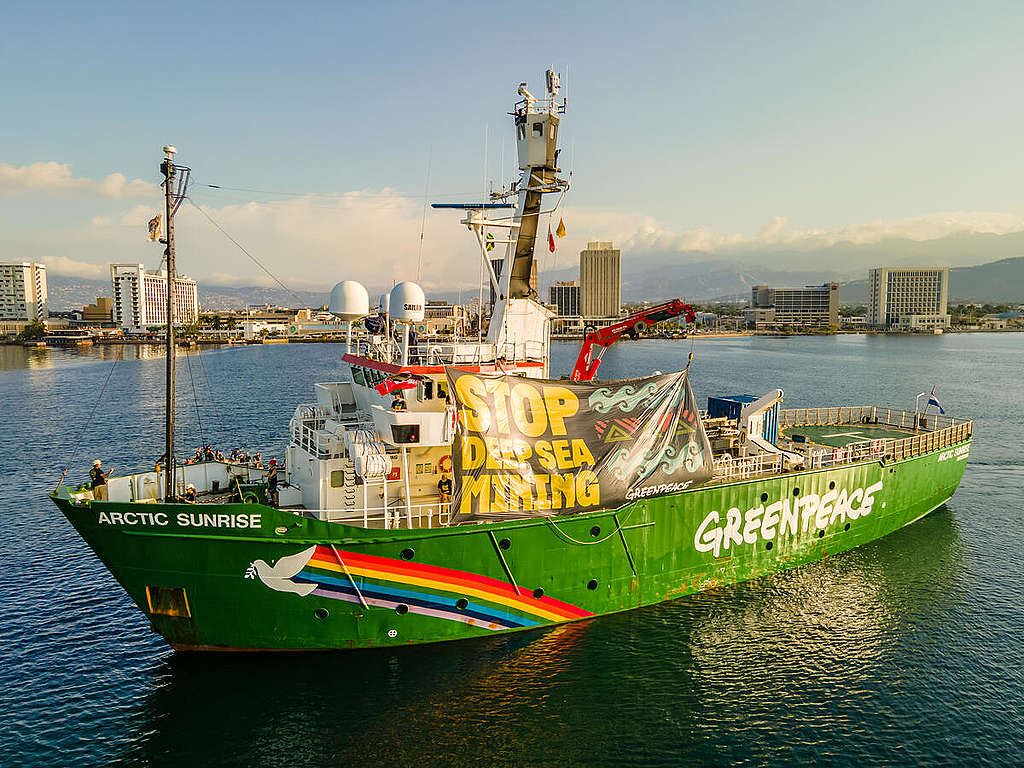My name is Quack Pirihi. I am an Aotearoa (New Zealand) activist and campaigner who is part of the Pacific delegation attending the International Seabed Authority (ISA) conference this week in Kingston, Jamaica. I am of Ngāpuhi, Ngāti Wai, Ngati Porou, Ngāti Whatua o Kaipara whakapapa (heritage) and traveled to the ISA with a group of Pacific activists onboard Greenpeace's ship, the Arctic Sunrise. I'm here to speak about the stakes for Indigenous people if deep sea mining begins.
I was guided to be where I am, in this moment - by my tupuna (ancestors). Through the journeys I've been through from pepi (baby), to tamariki (child), to rangatahi (youth and young adult), to who I am today - is all in guidance and a natural process for us, as Māori.

Martin Katz / Greenpeace
I'm here to learn, grow, and stand in solidarity with Pacific voices, and Indigenous voices heading to the International Seabed Authority Council Meeting. I'm here to break down boundaries between complicated places and the people they insist on keeping out. It's our birth right to be here, and the birth right of our people to be included. I'm here to have a presence in these international spaces. I'm here to be a shit stirrer. I'm here to practice playful and intentional protest, and I'm here to be guarded and guided. We deserve to be in the room.
Without karakia (prayer) and the karanga (a call or summon) from the land that you stand on, you are not manuhiri (guest), you are an intruder. If you don't adhere to the practice of the Pacific, you are both undermining the mana (power or authority) of the people and you're putting yourself in danger.

Papatūānuku (Earth mother) shows us that they know how to cleanse themselves of mamae (hurt or pain). They know cyclones will wash away homes and they know the extent of flooding. Papatūānuku knows the scale that deep sea mining will have on themselves. Papatuanuku will still remain, but our livelihood, our connection with the whenua (land), can and will change drastically if things continue to be ignored.
You can't karanga (sacred call) to an empty marae (meeting grounds) and you can't mihi to a broken moana. We can't be Māori without the moana (ocean), we are not Māori without the moana!
Our stake is our karakia.
Our stake is our hononga ki te whenua.
Hoki mai te moana. Hoki mai te whenua.
Our stake is our cultural place.
Our stake is our connection to the land.
Give back our ocean. Give back our land.
Separate from deep sea mining, we are bearing the impacts of colonisation and as we continue to heal, we continue to see high incarceration rates, high results of mental illness, with abuse through drugs and alcohol and violence, the failure of our education system and health system, deep sea mining will push our people further away from thriving in iwi (tribe), hapū (sub tribe), whānau (family).
It's prolonging our ability to heal, it's sending us on a voyage far away from liberation, it's translating our culture into words we can not understand. Our rangatahi (young person or young adult) already have to learn about the trauma of their parents and grandparents, let this not be another thing that we have to pass onto them, our descendants.
Let us pass on our beautiful stories, our whakapapa (genealogy), our rongoa (traditional Māori healing), not more horror. Let this be a chance to tell stories with aroha and peace. This is our rangatiratanga (right to exercise authority), this is our mana motuhake (self determination), and we'll never push that aside.
We can not be pushed aside.
Guest authors work with Greenpeace International to share their personal experiences and perspectives and are responsible for their own content.






